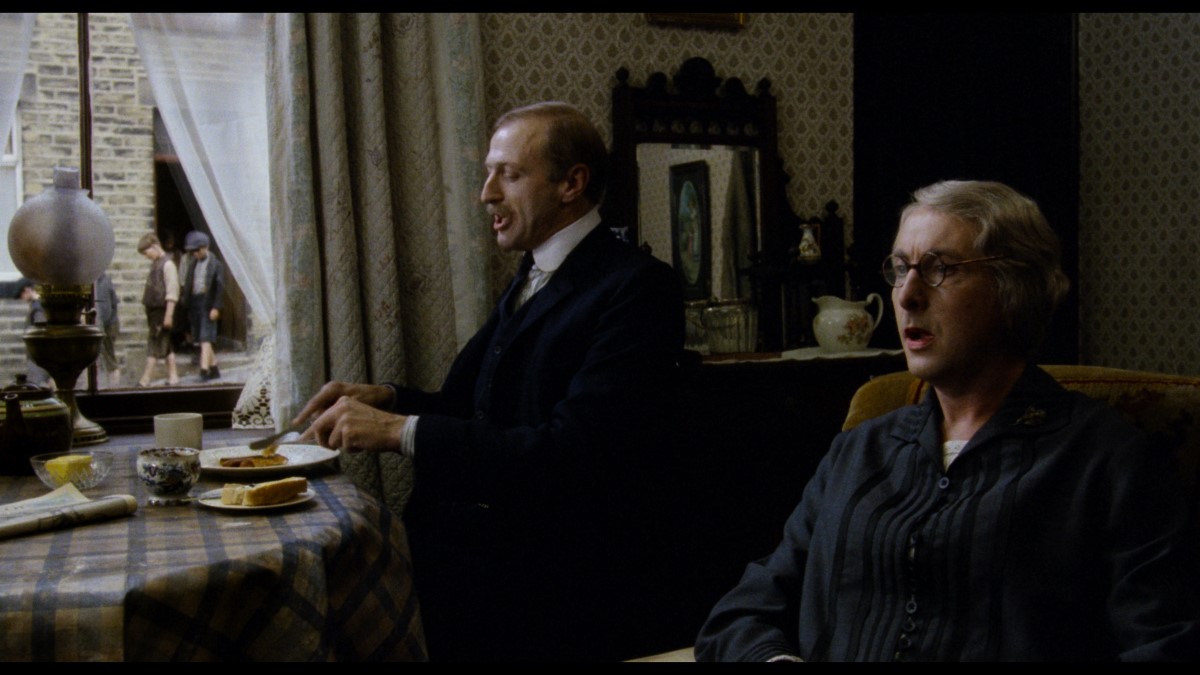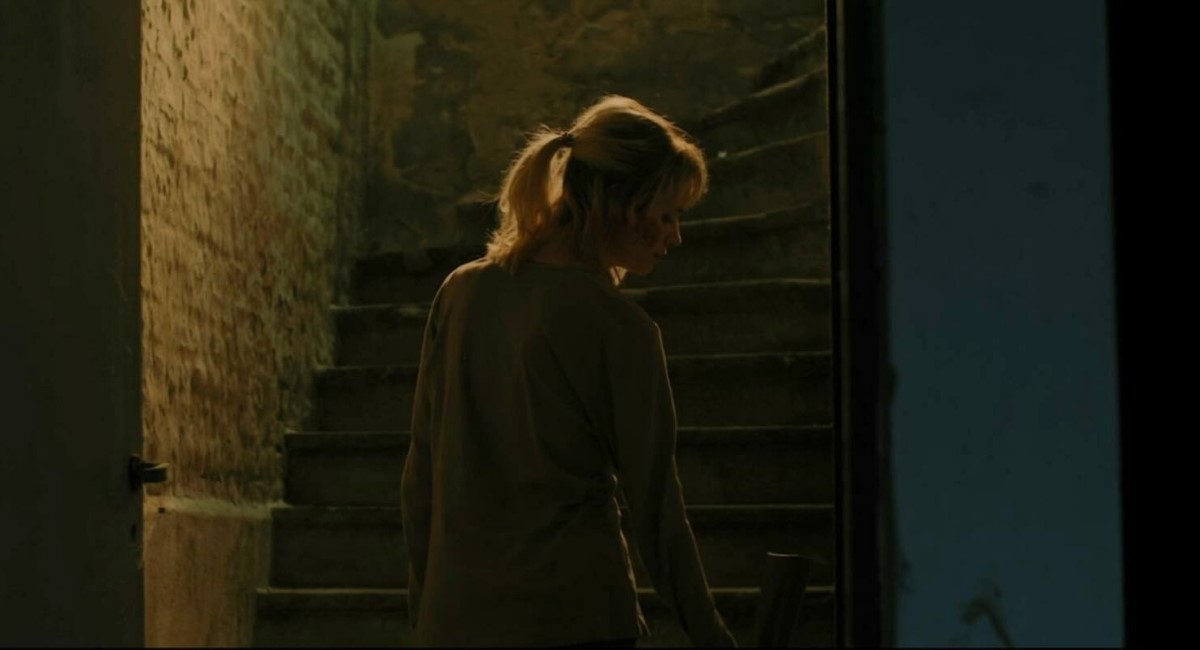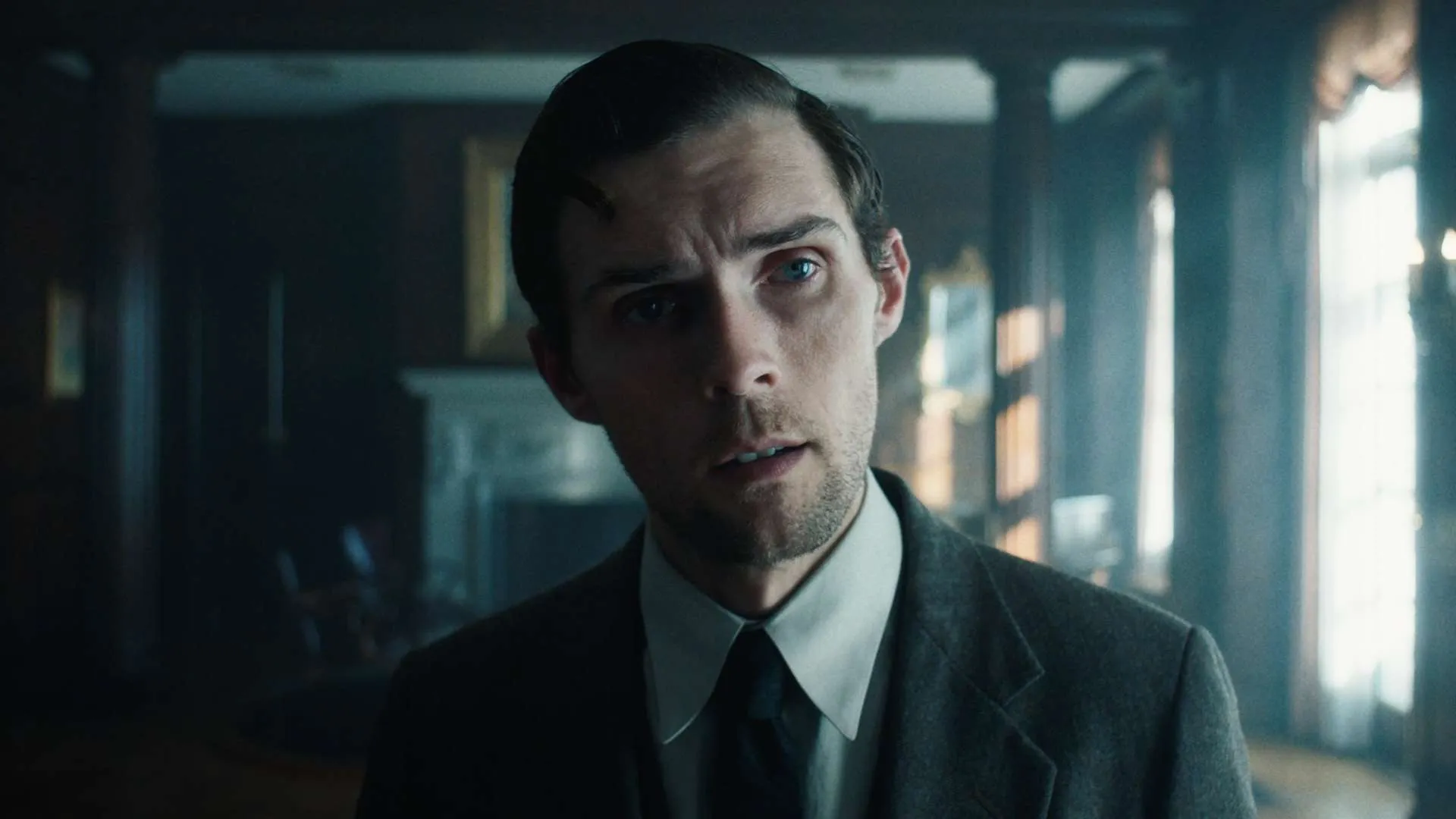In Yorkshire, a Roman Catholic man has lost his job and returned home to tell his numerous children that he will have to sell them off due to the Catholic church’s opposition to contraception. A Protestant man (Graham Chapman) with his wife (Eric Idle) looks on disapprovingly, and proudly remarks that Protestants can use contraception and have sex for pleasure (though his wife points out that they never do).
* * *
Harry Blackitt: Look at them, bloody Catholics, filling the bloody world up with bloody people they can’t afford to bloody feed.
Mrs. Blackitt: What are we dear?
Harry Blackitt: Protestant, and fiercely proud of it.
Mrs. Blackitt: Hmm. Well, why do they have so many children?
Harry Blackitt: Because… every time they have sexual intercourse, they have to have a baby.
Mrs. Blackitt: But it’s the same with us, Harry.
Harry Blackitt: What do you mean?
Mrs. Blackitt: Well, I mean, we’ve got two children, and we’ve had sexual intercourse twice.
Harry Blackitt: That’s not the point. We could have it any time we wanted.
Mrs. Blackitt: Really?
Harry Blackitt: Oh, yes, and, what’s more, because we don’t believe in all that Papist claptrap, we can take precautions.
Mrs. Blackitt: What, you mean… lock the door?
Harry Blackitt: No, no. I mean, because we are members of the Protestant Reformed Church, which successfully challenged the autocratic power of the Papacy in the mid-sixteenth century, we can wear little rubber devices to prevent issue.
Mrs. Blackitt: What d’you mean?
Harry Blackitt: I could, if I wanted, have sexual intercourse with you…
Mrs. Blackitt: Oh, yes, Harry.
Harry Blackitt: …and, by wearing a rubber sheath over my old feller, I could insure… that, when I came off, you would not be impregnated.
Mrs. Blackitt: Ooh.
Harry Blackitt: That’s what being a Protestant’s all about. That’s why it’s the church for me. That’s why it’s the church for anyone who respects the individual and the individual’s right to decide for him or herself. When Martin Luther nailed his protest up to the church door in fifteen-seventeen, he may not have realised the full significance of what he was doing, but four hundred years later, thanks to him, my dear, I can wear whatever I want on my John Thomas…
[sniff]
Harry Blackitt: … and, Protestantism doesn’t stop at the simple condom. Oh, no. I can wear French Ticklers if I want.
Mrs. Blackitt: You what?
Harry Blackitt: French Ticklers. Black Mambos. Crocodile Ribs. Sheaths that are designed not only to protect, but also to enhance the stimulation of sexual congress.
Mrs. Blackitt: Have you got one?
Harry Blackitt: Have I got one? Uh, well, no, but I can go down the road any time I want and walk into Harry’s and hold my head up high and say in a loud, steady voice, ‘Harry, I want you to sell me a condom. In fact, today, I think I’ll have a French Tickler, for I am a Protestant.’
Mrs. Blackitt: Well, why don’t you?
Harry Blackitt: But they – Well, they cannot, ’cause their church never made the great leap out of the Middle Ages and the domination of alien Episcopal supremacy.





